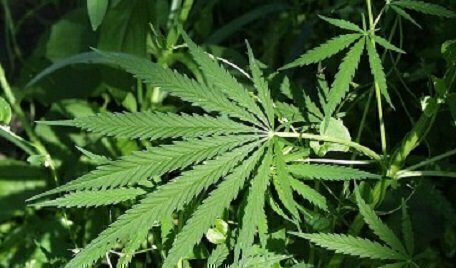
The Justice Department rescinded an Obama-era memo on Thursday that deprioritized federal marijuana prosecutions in states that have legalized the drug. The move escalates some compelling legal and policy questions about an issue with constitutional implications.

Attorney General Jeff Sessions’ one-page memo instructs United States Attorneys to ignore guidance from 2013 that department resources should be limited in the criminal prosecution of marijuana users and state-approved growers in states where marijuana is legal.
Currently, eight states have approved the controlled legalized sales of marijuana after state voters directly approved the measures. The District of Columbia also legalized the recreational use of marijuana, but not sales. In addition, 29 states and the federal district have legalized medical marijuana.
“Today's memo on federal marijuana enforcement simply directs all U.S. Attorneys to use previously established prosecutorial principles that provide them all the necessary tools to disrupt criminal organizations, tackle the growing drug crisis, and thwart violent crime across our country,” Sessions said.
The 2013 policy change, known as the Cole memo, focused federal attorneys on pursuing cases against people who sold marijuana to minors, took part in interstate trafficking, were members of criminal gangs, or used federal property for marijuana purposes. It delegated other enforcement of marijuana laws to state and local officials.
“This return to the rule of law is also a return of trust and local control to federal prosecutors who know where and how to deploy Justice Department resources most effectively to reduce violent crime, stem the tide of the drug crisis, and dismantle criminal gangs,” Sessions said. There was no mention in the Sessions memo about how the U.S. attorneys should deal with marijuana production and sales where it is legal for recreational and medical use under state law.
Medical and recreational marijuana use is still illegal nationally under the Controlled Substances Act and marijuana is listed under the Schedule 1 list of drugs, along with heroin and LSD.
The conflict between state laws that allow limited marijuana use and the federal law that bars it, in theory, falls in the domain of the federal Constitution’s Supremacy Clause, which reads in part that “This Constitution, and the Laws of the United States which shall be made in Pursuance thereof; …, shall be the supreme Law of the Land.”
Some states-rights supporters argue that the 10 th Amendment, which grants rights to the states and the people not reserved to the federal government, allows for states to choose their own marijuana laws and how the laws are enforced by state and local law enforcement officers.
Sessions’ memo was quickly condemned by political leaders in states that have legalized recreational use. For example, Senator Cory Gardner, a Republican from Colorado attacked Sessions on Twitter. “I am prepared to take all steps necessary, including holding DOJ nominees, until the attorney general lives up to the commitment he made to me prior to his confirmation,” Gardner said, adding that Sessions “has trampled on the will of the voters in CO and other states."
Washington state Governor Jay Inslee repeated threats made last year when Sessions’ interest in a policy change was widely reported. “As we have told the Department of Justice ever since I-502 was passed in 2012, we will vigorously defend our state’s laws against undue federal infringement,” said in a statement today.
One question raised by the Sessions memo is the availability of federal resources to conduct direct enforcement of marijuana laws. Any widespread federal effort to enforce federal medical and recreational marijuana laws that conflict with state laws would likely require local law enforcement to take part. That is another 10 th Amendment issue involving the Supreme Court’s Anti-Commandeering doctrine, where federal agencies have limited powers to force state and local law enforcement agencies to enforce federal laws, especially when local governments are paying the bill.
Another is the ability of federal prosecutors to win over juries in states where marijuana is legal. For example, jurors who reside in Colorado could be asked to decide the fate of a person legally growing marijuana under state laws.
Two areas where action is unlikely to come are Congress and the Supreme Court. For years, Congress has been unwilling to change the Controlled Substances Act to recognize that states can allow recreational and medical marijuana sales, distribution and use. However, it recently approved an extension of the Rohrabacher-Blumenauer amendment, which prohibits the use of federal funds to prosecute medical marijuana violations in states where that use is legal.
And the Supreme Court passed on the issue back in 2016, when it refused to hear a complaint from Nebraska and Oklahoma about Colorado’s legalized marijuana law.
Scott Bomboy is the editor in chief of the National Constitution Center.